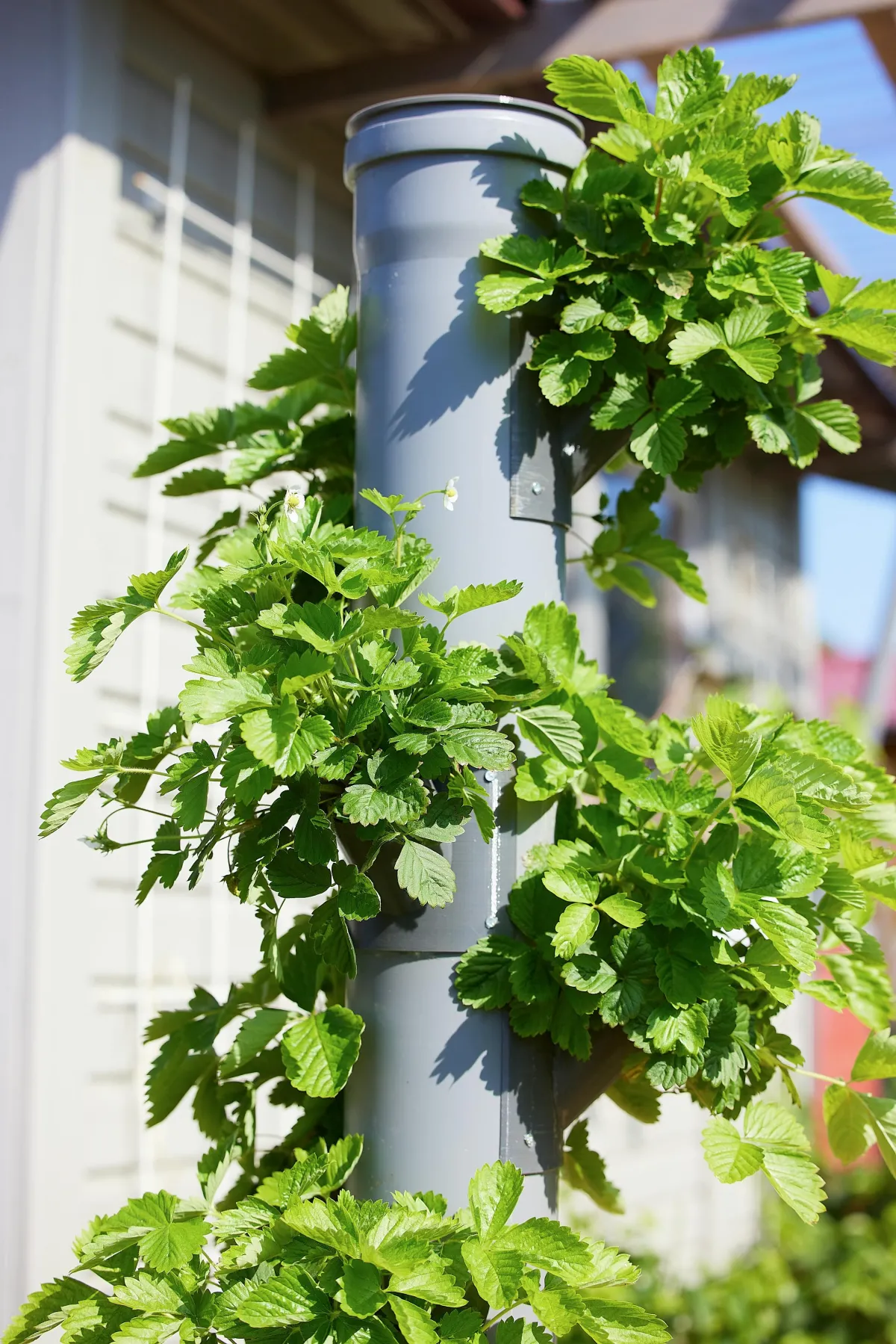
What is Hydroponics? A Comprehensive Guide for Homesteaders
What is Hydroponics? A Comprehensive Guide for Homesteaders
Welcome to KrisandLarry.com, your go-to source for all things homesteading! Today, we're diving into the fascinating world of hydroponics—a method of growing plants without soil that can revolutionize your homesteading experience. As proud owners of a hydroponics tabletop system and a hydroponics tower garden on our mini farm, we're excited to share our knowledge and enthusiasm for this innovative approach to gardening.
What is Hydroponics?
Hydroponics is a method of growing plants using a nutrient-rich water solution instead of soil. The word "hydroponics" comes from the Greek words "hydro," meaning water, and "ponos," meaning labor. This system allows plants to grow faster and produce more yields compared to traditional soil-based farming. The roots of the plants are suspended in a nutrient solution, providing them with the necessary minerals and oxygen they need to thrive.
The Benefits of Hydroponics
Efficient Use of Space: Hydroponic systems can be set up vertically, making them ideal for small spaces. This is particularly useful for urban homesteaders or those with limited land.
Water Conservation: Hydroponics uses up to 90% less water than traditional soil gardening. The water in hydroponic systems is recirculated, reducing the need for constant watering and making it an eco-friendly option.
Faster Plant Growth: Plants grown hydroponically tend to grow faster because they receive a constant supply of nutrients and oxygen. This can result in multiple harvests throughout the year.
Pest and Disease Control: Without soil, many common pests and soil-borne diseases are eliminated. This reduces the need for pesticides and herbicides, leading to healthier plants and produce.
Year-Round Gardening: With hydroponics, you can grow plants indoors, allowing for year-round gardening regardless of the weather outside. This is perfect for homesteaders who want a steady supply of fresh produce.
Types of Hydroponic Systems
There are several types of hydroponic systems, each with its own unique setup and benefits. Here are a few popular ones:
Nutrient Film Technique (NFT): In this system, a thin film of nutrient solution flows over the roots of the plants. The roots are exposed to both air and nutrients, promoting faster growth.
Deep Water Culture (DWC): Plants are suspended in a nutrient solution, and their roots are fully submerged. An air pump supplies oxygen to the roots, preventing them from drowning.
Ebb and Flow (Flood and Drain): This system involves periodically flooding the grow bed with nutrient solution and then draining it. This provides the roots with nutrients and oxygen at intervals.
Drip System: Nutrient solution is dripped onto the base of each plant through a network of tubes. Excess solution is collected and recirculated.
Aeroponics: In this advanced system, plant roots are suspended in the air and misted with a nutrient solution. This provides excellent oxygenation and nutrient absorption.
Setting Up a Hydroponic System
Setting up a hydroponic system on your homestead can be an exciting and rewarding project. Here are the basic steps to get you started:
Choose Your System: Decide which type of hydroponic system suits your needs and space. For beginners, a simple DWC or drip system might be the easiest to start with.
Gather Materials: You'll need a container for the nutrient solution, an air pump or water pump (depending on your system), growing medium (like rockwool or clay pellets), and of course, your plants.
Set Up the System: Assemble your hydroponic system according to the instructions. Make sure it's stable and secure.
Mix Nutrient Solution: Prepare the nutrient solution by mixing water with hydroponic nutrients. Follow the instructions on the nutrient package for the correct ratios.
Transplant Your Plants: Carefully transfer your seedlings or young plants into the hydroponic system. Make sure the roots are well-placed in the growing medium.
Monitor and Maintain: Regularly check the pH and nutrient levels of the solution, and adjust as needed. Keep an eye on your plants for any signs of pests or disease.
Our Experience with Hydroponics
On our mini farm, we have both a hydroponics tabletop system and a hydroponics tower garden. These systems have allowed us to grow a variety of vegetables and herbs, providing fresh produce year-round. Here’s a closer look at our experience:
Hydroponics Tabletop System: Our tabletop system is perfect for growing smaller plants like lettuce, spinach, and herbs. It's compact and fits easily in our kitchen, allowing us to have fresh greens at our fingertips. We've found that this system is incredibly efficient and low-maintenance, making it ideal for busy homesteaders.
Hydroponics Tower Garden: Our tower garden is a vertical system that maximizes our growing space. It's capable of growing larger plants like tomatoes, cucumbers, and peppers. The vertical design also makes it a visually appealing addition to our mini farm. The tower garden has significantly increased our yield, and we love the convenience of having a variety of vegetables in one compact system.
Common Challenges and Solutions
While hydroponics offers many benefits, it’s not without its challenges. Here are some common issues and how to address them:
Nutrient Imbalance: Plants can show signs of nutrient deficiencies or toxicities. Regularly test your nutrient solution and adjust the levels as needed.
pH Fluctuations: Maintaining a stable pH is crucial for nutrient absorption. Use a pH meter to monitor and adjust the pH levels of your solution.
Root Rot: Overwatering or poor oxygenation can lead to root rot. Ensure proper aeration in your system, and avoid letting the roots sit in stagnant water.
Algae Growth: Algae can compete with your plants for nutrients. Keep your system covered to block out light and prevent algae growth.
Pests: While hydroponics reduces the risk of pests, it doesn't eliminate them entirely. Regularly inspect your plants and use natural pest control methods if necessary.
Tips for Success
Start Small: If you're new to hydroponics, start with a small system and a few plants. This will help you get the hang of the process without becoming overwhelmed.
Educate Yourself: There are plenty of resources available—books, online forums, and local gardening clubs. Take the time to learn as much as you can about hydroponics.
Experiment: Don't be afraid to try different plants and techniques. Hydroponics is a versatile method, and experimenting can lead to great discoveries.
Stay Consistent: Regular maintenance is key to a successful hydroponic garden. Check your system daily to ensure everything is running smoothly.
Have Fun: Hydroponics can be a rewarding and enjoyable hobby. Embrace the learning process and have fun with it!
Conclusion
Hydroponics is a game-changer for homesteaders looking to grow their own food efficiently and sustainably. Whether you're limited on space or looking to maximize your yield, hydroponic systems offer a versatile and productive solution. Our experience with both a tabletop system and a tower garden has been incredibly positive, and we highly recommend exploring this innovative method.
At KrisandLarry.com, we believe in the power of self-sufficiency and sustainable living. Hydroponics fits perfectly into this philosophy, providing fresh, home-grown produce all year round. So why not give it a try? Start small, learn as you go, and enjoy the bountiful harvests that hydroponics can bring to your homestead.
Happy gardening!
If you have any questions or need further guidance, feel free to reach out to us through our contact page or leave a comment below. We’re here to help you every step of the way on your homesteading journey.

About Us
We are a large, Christian, homeschooling homesteading family from Chino Valley, Arizona. (2 parents - Kris and Larry, 8 kids, some not so little any more and 3 spouses of the kids)
We have a fun Youtube channel, a blog, and a homestead shop with goat milk soap and lotion, signs, jewelry & more.
Copyright© 2025 KrisandLarry - All Rights Reserved.

Facebook
Instagram
Youtube
TikTok